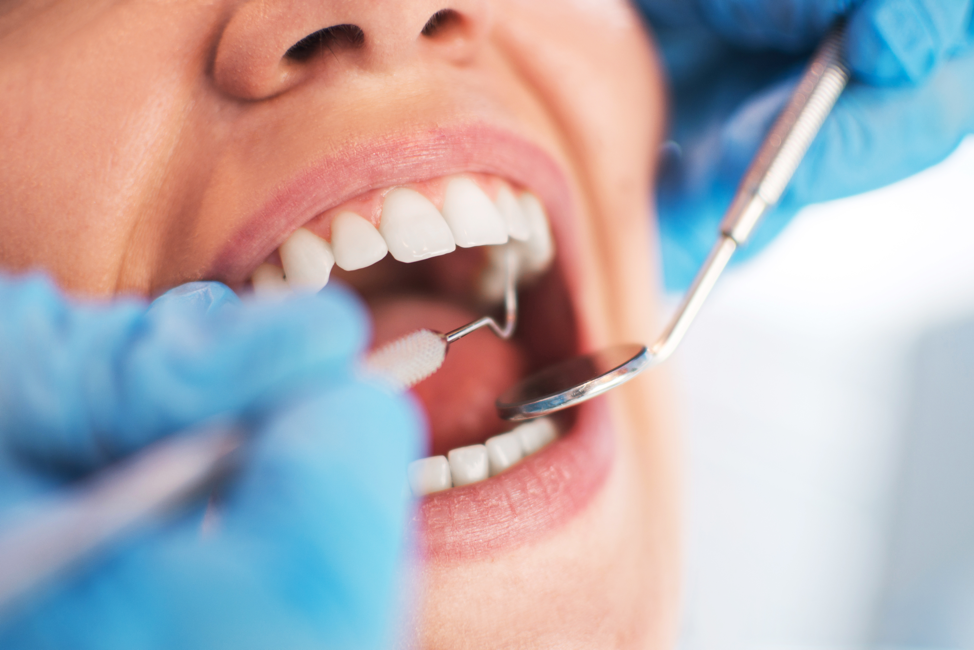Kids’ Oral Health: Top Tips for Healthy Teeth
Hey there, folks! Today, we’re diving into an essential topic that every parent should pay close attention to: children’s oral health.
Anúncios
Teaching your little ones good dental habits early on can set them up for a lifetime of healthy smiles. So, grab your toothbrush and let’s embark on this journey to sparkling chompers!
Anúncios
Start Early: Baby Oral Health Matters Too
You might think those tiny baby teeth are expendable since they’ll eventually fall out, but that’s a common misconception. Baby teeth act as placeholders for adult teeth and play a crucial role in speech development and chewing. So, oral care should begin even before your child’s first tooth appears.
Choose the Right Toothbrush and Toothpaste
When your child’s first tooth sprouts, it’s time to introduce them to their very own toothbrush and toothpaste. Opt for a soft-bristle brush and a fluoride toothpaste approved by your dentist. Fluoride helps strengthen tooth enamel and protect against cavities. Make sure to use only a pea-sized amount of toothpaste for kids under three years old.
Anúncios
Make Brushing a Fun Ritual
Let’s face it; brushing teeth can be a little boring for kids. To make it more exciting, turn it into a fun ritual. Play their favorite song or set a two-minute timer to make sure they brush for the recommended duration. You can even make up a toothbrushing dance together!
Lead by Example
Kids often mimic their parents’ behavior, so be a dental role model. Brush your teeth together as a family and let them see you taking care of your oral health. This not only encourages good habits but also strengthens the family bond.
Regular Dental Check-ups are a Must for Oral Health
Don’t wait until there’s a problem to visit the dentist. Start dental check-ups when your child is around one year old, or as advised by your dentist. These visits can help catch and prevent potential issues early on. Plus, it’s a great opportunity to make friends with the dentist chair.
Limit Sugar Intake
Sugar is the arch-nemesis of healthy teeth. It’s essential to limit your child’s consumption of sugary snacks and drinks. Encourage water as the primary beverage and provide healthier alternatives like fruits and vegetables for snacks. And if they do indulge in sweets, make sure they brush their teeth afterward.
Teach Proper Brushing Techniques
Proper brushing techniques are key to effective cleaning. Show your child how to brush all surfaces of their teeth gently in circular motions. Make sure they also brush their tongue to eliminate bad breath-causing bacteria. Supervise them until they can confidently brush on their own, usually around age 6 or 7.
Use Positive Reinforcement
Praise and rewards can work wonders in motivating kids. Create a sticker chart or give small rewards when they consistently brush their teeth well. Positive reinforcement helps create a positive attitude toward oral hygiene.
Explain the Consequences of Not Taking Care of Oral Health
As children grow, they can better understand the consequences of their actions. Explain in simple terms that neglecting dental care can lead to painful cavities and toothaches. Help them understand why it’s essential to brush and visit the dentist regularly.
Be Patient and Understanding
Finally, be patient and understanding throughout the process. There will be days when your child resists brushing or doesn’t want to go to the dentist. Stay calm and reassuring, and try to find ways to make dental care enjoyable rather than a chore.
The Importance of Nutrition for Oral Health
A healthy diet plays a significant role in oral health. Teach your kids about the importance of eating foods rich in calcium, like dairy products, and vitamin C, found in fruits and vegetables. These nutrients are essential for strong teeth and gums. Encourage them to enjoy a balanced diet to support their overall well-being.
Avoid Overindulgence in Acidic and Sticky Foods
While it’s essential to promote a balanced diet, it’s also crucial to limit acidic and sticky foods and beverages. Acidic foods and drinks, such as citrus fruits and soda, can erode tooth enamel over time. Sticky snacks, like gummy candies, can get stuck in the crevices of teeth, increasing the risk of cavities. Encourage moderation when consuming these items.
Protect Teeth during Sports
If your child is active in sports, consider investing in a mouthguard. Mouthguards help protect teeth from injuries during physical activities. They are especially important if your child participates in contact sports like football or hockey. Speak to your dentist about getting a custom-fitted mouthguard for the best protection.
Address Thumb-Sucking and Pacifier Use
Thumb-sucking and prolonged pacifier use can affect dental development. If your child continues these habits as they get older, it can lead to alignment issues, such as an overbite. Discuss strategies with your dentist to help your child stop these habits at an appropriate age.
Understand the Role of Genetics in Oral Health
Genetics can also play a role in oral health. If you have a family history of dental issues, such as gum disease or crooked teeth, be aware of these factors and discuss them with your dentist. They can provide guidance on preventive measures and early interventions if needed.
In conclusion, teaching your children good oral health habits is an investment in their overall well-being. Start early, make it fun, and lead by example. Remember that it’s a journey, and every little step counts toward a lifetime of healthy smiles.
So, keep those toothbrushes handy, and here’s to happy, cavity-free mouths for all the little ones! Your child’s beautiful smile is worth every effort you put into their oral health.


